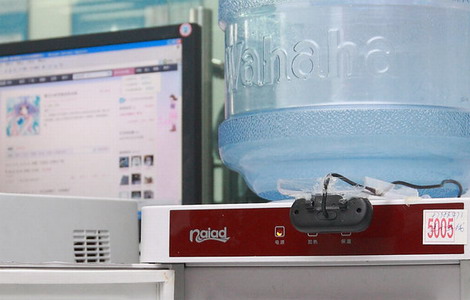Tightened government measures cut software piracy
Updated: 2011-12-25 16:06
(Xinhua)
|
|||||||||||
BEIJING - Government's intensified efforts to root out software piracy are bringing concrete benefits to software providers.
Kingsoft Corporation, China's renowned software company, posted sales of 130 million yuan during the first 11 months of this year, representing a sharp increase from an annual sales of tens of millions of yuan in 2007.
"This also reflects that Chinese consumers have heightened awareness on copyright protection," said Liu Chao, Kingsoft's product director.
Kingsoft is not the only beneficiary.
Huang Yaohui, Adobe's general manager of the Greater China Region, said that the usage rate of authorized Adobe software in China has continuously increased due to the government's copyright protection efforts.
Huang said he is satisfactory with the current usage rate, though he declined to disclose the specific proportion of copyrighted Adobe software to pirated Adobe software in the country.
As early as in 2006, Chinese authorities had issued a statement requiring all governmental departments to buy computers installed with copyrighted software.
The government spent 1.07 billion yuan ($169.84 million) on purchasing copyrighted software during the 2007-2010 period, according to data from the Central Government Procurement Center.
This year, China has organized teams of inspectors to canvass central and local government computers to ensure that all the departments are using authorized software, and stepped up inspections of software pre-installation on computers sold in the country.
Thanks to its continuous efforts, copyrighted software has already been installed in central government departments, and it will be popularized among local authorities next year, Chang Xiaocun, head of the market order department of the Ministry of Commerce, said Tuesday during an interview with www.gov.cn.
The pre-installed rate of authorized operating systems in factory-produced computers in China reached 98.08 percent in 2010, and the rate for some companies like Lenovo and Acer had hit 100 percent.
"Computers pre-installed with unauthorized software have long been a core problem for the software industry. We are glad to see such piracy is finally subsiding," said Han Jun, deputy director of the Technology Department of the Ministry of Industry and Information Technology.
Han said that with the country's stronger attempt to shift from imitation to innovation, the government will work harder to root out piracy, such as handing out hefty penalties to offenders.
The government's frequent campaigns against intellectual property infringement helped create a sound business environment and greatly boosted the development of the country's software industry.
CAXA, the country's largest provider of computer-aided design software, also reported buoyant sales in recent years.
"A domestic automaker bought 2,000 pieces of software from our company to replace its old ones," said Liu Aijun, CAXA technical director.
"As China increasingly becomes the software developer and seller, rather than just the user, people's views on piracy will change. They will not tolerate it any more," Liu added.
Consumers have shown preference to copyrighted software out of safety concerns, as unauthorized software often include computer viruses, worms and Trojan horses that permit outsiders to invade users' systems.
A rise in people's incomes in recent years also helped promote the use of authorized software in the country.
"Copyrighted software is becoming more affordable nowadays, so I feel less incentive to buy pirated pieces," a 28-year-old bank employee surnamed Zhang said.
Despite much progress China has made in combating software piracy, it still needs to do more to protect intellectual property rights and reduce trade frictions with other countries.
China should require government agencies to count software purchases as fixed assets subject to annual audits, and promote the use of licensed software among enterprises and individuals after pushing governments to use authorized software, said Chang Xiaocun.
Hot Topics
HIV/AIDS, Egypt protest, Thanksgiving, climate change, global economic recovery, home prices, high-speed railways, school bus safety, Libya situation, Weekly photos
Editor's Picks

|

|

|

|

|

|







